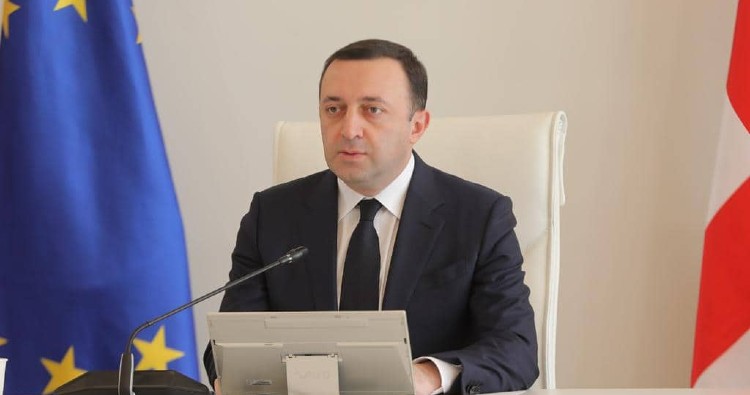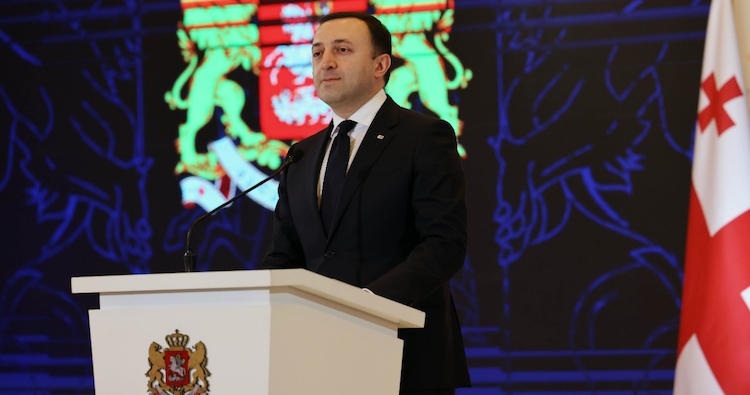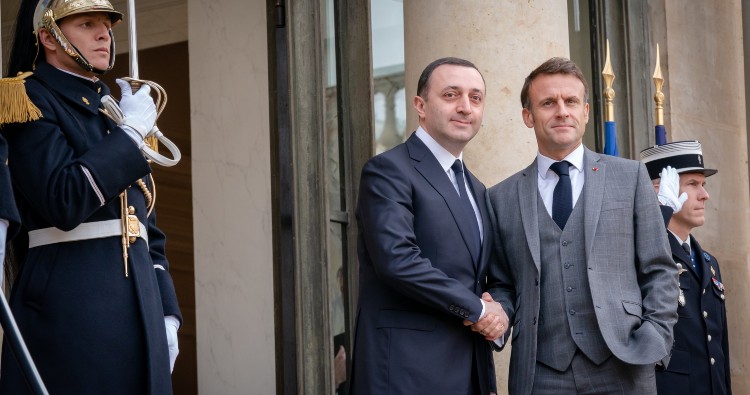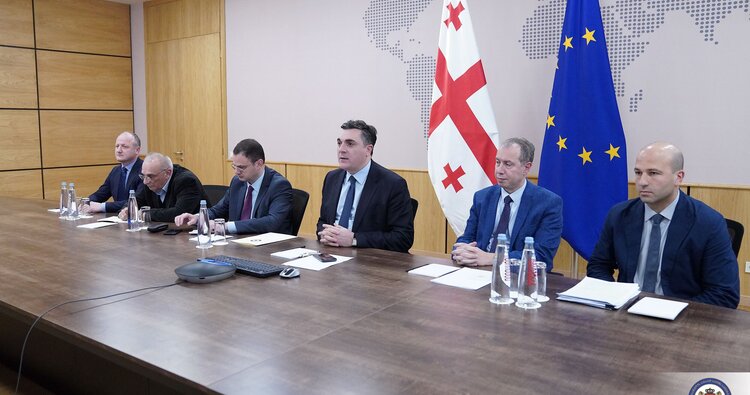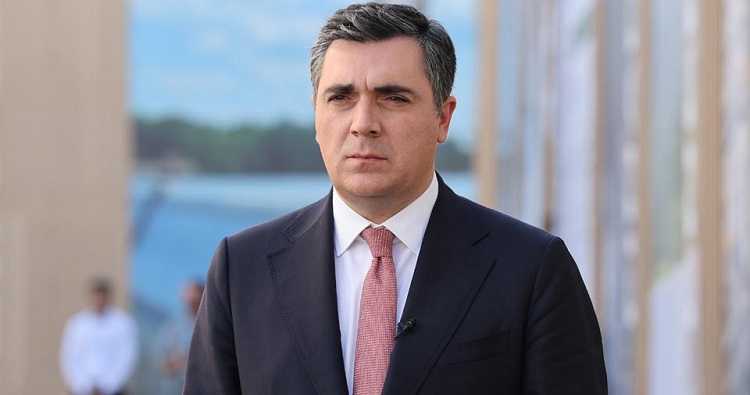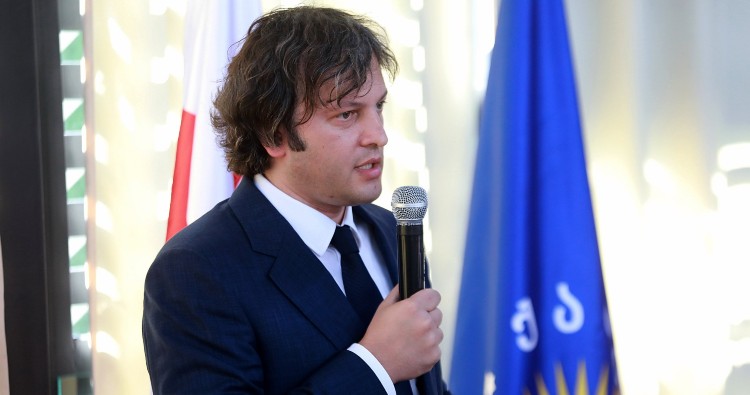Parliament Speaker outlines “myths” about country’s EU candidate status
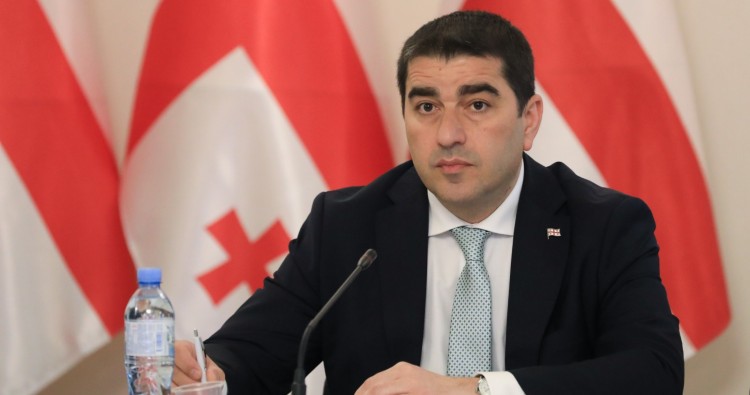
In his social media message over the matter, Papuashvili noted the European Commission’s recommendation last week for the European Council to grant the country the candidate country status was a “historic decision”. Photo: Parliament of Georgia
Georgian Parliament Speaker Shalva Papuashvili on Monday claimed existence of five “myths” about the process and outcome of the country’s application for receiving the European Union membership candidate status.
In his social media message over the matter, Papuashvili noted the European Commission’s recommendation last week for the European Council to grant the country the candidate country status was a “historic decision”.
He stressed the outcome was bringing a “higher level of responsibility” for the Georgian Government and had met the Government’s and public’s expectations, “duly reflecting our decade-long unwavering commitment to the European path and Western orientation”.
Five myths about Georgia’s EU candidate status
— Shalva Papuashvili ???????? (@shpapuashvili) November 13, 2023
The European Commission’s recommendation this week to grant Georgia the EU candidate country status was a historic decision. After granting the European Perspective last year, this week’s decision constitutes an entirely new level… pic.twitter.com/kpd3uLZpzH
But the chief Georgian legislator claimed the day that “should have been a moment of national unity”, had instead been marred by the domestic opposition’s “relentless attempts to discredit” the Government’s role in the achievement.
“These attempts rest on myths that aim to discredit the Georgian Government and, despite being baseless and slanderous, require an answer”, Papuashvili said.
The official said one of the “major myth[s]” was that the country had been recommended to receive the status without duly fulfilling the conditions originally set out by the European Commission last year.
Nothing can be farther from the truth. The 12 priorities were dealt with, almost single-handedly, by the Georgian Dream authorities. The Parliament, in particular, worked hard. Parliamentary working groups, the Committees, and the staff completed an immense volume of work. Nearly a hundred laws were passed for the purpose of fulfilment of the EU recommendations, which constitutes one third of the overall Parliamentary work”, Papuashvili continued.
He also added a part of the domestic opposition separating the Government from citizens in assigning credit for the European Commission’s recommendation was a “tactic from the Kremlin’s playbook”.
“In democracy, such as Georgia, the Government acts upon the will of people. The Government’s obtaining, first, of the European perspective [in 2022] and, then the candidacy recommendation are the proofs thereof”, he said.
Georgian Dream was the only party that incorporated the intention to apply for EU membership by 2024 in its pre-election programme of 2020, and diligently worked its way along the designated path”, the chief Georgian legislator added.
He also pointed to a “myth” that the Government had distanced itself from Europe - a claim made by a part of the opposition - by saying the Georgian Dream party had incorporated the double clause of European and Euro-Atlantic integration - for the EU and NATO respectively - into the new edition of the Constitution in 2018.
Papuashvili also said claims of the domestic opposition’s “hard” work for seeing the status being granted to the country was the “most vicious and cynical myth” as the opposition, especially its “radical” part, had “attempted to sabotage” the work on the EU conditions for the status, to “smear” the Government’s efforts and to “downplay” the importance of the eventual accomplishment.
The official also highlighted geopolitical factors behind the candidate status by saying they “create the permissive or challenging environment but it is up to the Governments to exploit it to their advantage”.
International political change, per definition, influences Georgia’s progress towards Europe. The Russian invasion of Ukraine cannot be cast as an opportunity for Georgia. In fact, this unjustified and inhumane invasion has exacerbated the already daunting security challenge for our country”, he noted.
Papuashvili added the Georgian Government was “resolute” about “achieving the maximum” on the path of European integration in the coming years, and further pointed out that “we should seize the opportunity and return Georgia to where it belongs, to the European family of nations”.
 Tweet
Tweet  Share
Share

